I have covered a good bit the whole messy affair involiving the far left, Romes oldest University, and the Holy Father. The Ratzinger Forum has a good piece from the Italian Press. Two atheist defend the Holy Father. I shall post their articles in full.
Why secular laymen should join the Angelus tomorrow en masse
By MARCELLO PERA
La Stampa
There are two main reasons why laymen, even non-believers - should be present en masse tomorrow at St. Peter's Square for the Agelus led by Benedict XVI. One is cultural, regarding something devoutly to be wished for, while the other is political, regarding a phenomenon that is to be feared.
The cultural reason is that lay seculars should distinguish themselves from secularists. In the current vocabulary, secular means non-believer, while secularist is he who believes that a believer has absolutely no reason to believe. This is not just a play on words. The secular does not base his own concept of the world on revealed faith. The secularist maitains that any revealed faith has no sense, except as a banal adherence to be kept private, like an ugly tic or a secret vice.
The secular does not believe, or is unable to believe, but recognizes that faith is a dimension of the human experience that has its own function - such as conferring sense to life, giving man his right role in the world, the identification of evil. The secularist rejects this dimension of man: for him, faith is an illusion, a setback to reason. And to sustain his position, the secularist uses a weapon which he believes to be lethal, proof of God. "What proof do you have of your God? Have you seen him? Have you spoken to him? Has any friend you trust ever met him? Have you deduced his existence from an accepted scientific theory?"
That argumentation is not a weapon, but a boomerang. What proof do you have that you love your wife? Do you repeat this to yourself every moment? Does everyone around you confirm it? A daily experience like this makes us understand that not all 'proof' takes the form of concrete observations, measurements, calculations and reason. Man has emotions, sentiments, passions, an internal sens of exaltation or dismay, moral certainty. These, too, are proofs. If the secularist does not feel any of these, he can at least acknowledge that others do, but if he rejects them outright, then one must face up to him and oppose him because his attitude is damaging.
In fact, the secularist is not ony deaf and blind. By rejecting the right to faith or deriding faith as mythical residue, he is being presumptuous and arrogant. He would impose his point of view on everyone, he would claim a monopoly of the truth. So, for example, he claims to be a follower of Galileo, but he does not even know about Galileo's own distinction between the truth of faith and the truth of science. And so the secularist is also anti-religion, and above all, anti-Christian. The political reason for joining the Angelus tomorrow is that laymen should distinguish themselves from clericalists.
Because inevitably, secularism generates its polar opposite in clericalism. In Italy and Europe today, there is a widening search for identity which is fed by the fear of Islam, guiltily hidden, and the disorientation on bioethical practices, deplorably ignored. Who are we? What do we believe in? What rights do we have and acknowledge? Do these rights include putting up with the intolerant who do not recognize others' rights? Do they include the right to, say, abortion for eugenic reasons? The right to hide and violate our traditional values?
This need for an identitiy has to do with the current rebirth of the religous phenomenon: it is the demand - first disoriented, then confused, and finally expressed - for fundamentals, for solid bases, in short, for faith. By his own merit and because men need this identity, Benedict XVI has become the enlightened exponent of this need for religiosity and identity. People sense this, and that is why they flock to him.
Whereas politicians feels little or nothing. They have not understood this new need, and therefore cannot interpret it using their own categories. By having a vision, a strategy, a leadership that does not speak the inertial language of the past, of slogans like "The throne and the altar should be kept apart", or "A free church in a free state", and similar formualtions which have no meaning today.
Meanwhile, outside Italy, important people are waking up. Tony Blair has converted to Catholicism. Sarkozy evokes the sources of Christian civilization, at the Lateran as in Saudi Arabia. But in Italy, politicians clam up on the issue of identity. With the risk that, just like the people, in order to get answers to their fundamental questions, they could be forced to bypass politics and directly address themselves to the interpreters of the faith - as political parties themselves have been known to do, allowing themseves to be guided, carried along and ordered by the Church.
And that is how secularism can become clericalism, in which a political leader with tin ears can become a cunning altar server, a 'devout atheist' to the letter, rather than in the healthy spirit with which the oxynmoron was coined. Seculars who have good memories and good faith cannot wish for such an outcome. And simply because, better than any lay thinker, the one who has given the best lesson on secularism is Benedict XVI, secular laymen have reason to show him their gratitude. By being present tomorrow for cultural and political reasons, not for any electoral or cynical motivations.
La Stampa, 19 gennaio 2008 .
Here is the other article
When 'free thinkers' deny freedom to those who do not think like them
By Giuliano Ferrara
Panorama
It is ridiculous to defend the Pope, who can well defend himself. It is useless to insult the professors who want to muzzle him, because they insult themselves. I prefer to say how I think as a 'devout atheist' - the term is self-ironical, and I ham conscious of using it in a nation devoid of irony
We should have expected a censorial act of violence against the Bishop of Rome. For years, I have been writing that secularism is transforming the whole world to 'single thinking', coerced conformism, the rejection of true dialog, and therefore, a false awareness of reality. For years, I have maintained that we have replaced religion as revelation and faith in transcendence, with a religion of immanence and emptiness. And I think that the high priests of that religion - abysmally remote from true secularity and charity, from liberal democracy and tolerance - are perfectly represented by that group of ignorant professors who, through intellectual sloppiness, have misused an old lecture by Joseph Ratzinger to attribute to him a statement about Galileo that is exactly opposite to what he really thinks, and decided to use those words as a pretext to prevent him from speaking at a university founded by a Pope centuries ago, now degraded by secularist sectarianism that would exclude ntellectual confrontation.
Ezio Mauro, editor of La Repubblica, should take note that these events have shown I was right. But instead, that newspaper has started a new operation in the ideological masking of reality. So the editor of Repubblica writes that 'devout atheists, so-called' (irony, self-irony), are revelling in the new divisions within Western consciousness, because nobody asks them to believe ['Ask them to believe'? Forced conversion?] and they can take from Christian culture what they wish, in order to reflect on ethics as a modern problem, thus degrading Christianity.
But what should a non-believing layman who does not adhere to the ultra-secularist church of Mauro do? Kneel down and pray in private? Stay silent and avoid doing the most secular operation of all - to offer them the secular Ratzinger and reject their new priesthood? That is, to choose from Christianity's deposit of culture and faith the elements with which to dialog with the world, in the name of a reason that is capable of understanding the public dimension of religion?
Unfortunately, that is precisely what the new priests of ultra-secularism, those who pride themselves on being 'free thinkers', oppose. Free speech is now being restricted in the theater of war of the new anti-clericalism, a secularist clericalism that stands in stark contrast to the rational openness of the Popes.
What a state of affairs! Even an intelligent man like historian Adriano Prosperi responds to someone like me - who opposes abortion and advocates placing a better, stronger definition of what life is, in the Universal Declaration of Human Rights - by saying 'Law 194 [Italy's 1981 law that legalized abortion in specific cases] cannot be touched', when no one has advocated doing that, and, in fact, in an example of positive secularism, the Church itself has said it should simply be applied as it was meant to be.
Why would men of science and of reason behave this way? Because, not really having any good arguments, they prefer to fall back on ideological aggression - in this case, to be anti-women, on the abortion issue, and to be anti-freedom, at La Sapienzza. These men of science and reason are on an ideological crusade that ignores the secular value of any thinking that is different from theirs.
I do not play the victim. I am a serious layman, and I like irony and self-irony, as I have said. I am also stubborn about what I believe, and I seek to address everyone who uses his intellect freely. But I cannot dialog with those who would use free thinking as the rusted shield to keep others from thinking and speaking differently. Blessed are those countries where professors are not ignorant asses, where serious people know that there must be two parties to a dialog, who do not distort the words of their adversaries, and who can understand, even if they cannot share, the ideas and passions of others. But it is difficult to be happy with a country like ours whose largest university once chased out the philosopher Lucio Colletti, the historian Renzo De Felice, the union leader Luciano Lama, and now has metaphorically burned at the stake the wise and gentle Bishop of Rome.
Saturday, January 19, 2008
Two Important Devout Atheist Defend the Pope
Posted by
James H
at
1/19/2008 12:26:00 PM
![]()
Labels: Catholic, Pope Benedict, vatican
Subscribe to:
Post Comments (Atom)

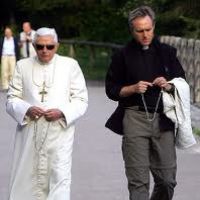

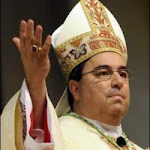



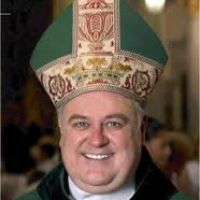



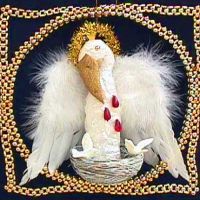
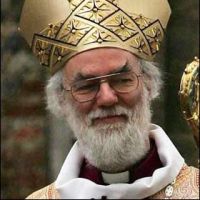
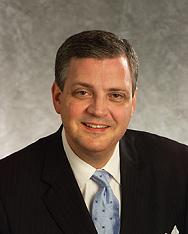
No comments:
Post a Comment